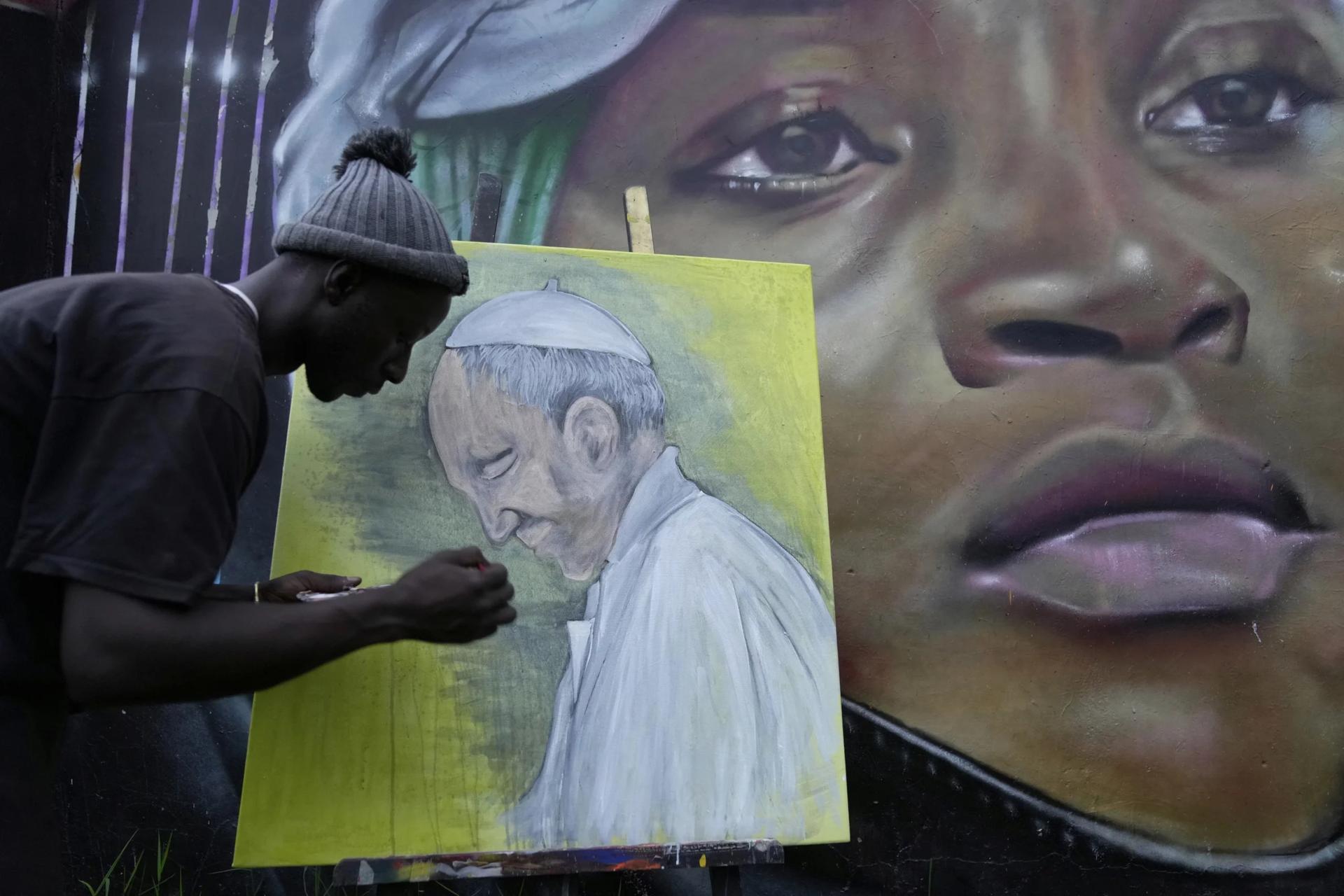YAOUNDÉ, Cameroon – Bishop Joseph-Marie Ndi-Okalla of Mbalmayo is the only bishop from Cameroon to attend the funeral ceremony of Pope Francis.
He told Crux that it felt good bowing before the coffin of the late pontiff and felt even better thinking about his legacy on the continent.
“I was fortunate to bow before Pope Francis, the same pope who appointed me as a bishop,” the bishop said.
“The world witnessed his funeral Mass. As the only Cameroonian bishop present, I felt honored to represent not only my fellow bishops but also the people of Cameroon,” he noted.
He recalled that the funeral procession moved from St. Peter’s Basilica to the Basilica of St. Mary Major.
“Crowds gathered along the streets of Rome to accompany Pope Francis on his final journey to St. Mary Major. It was a special grace to participate in this solemn occasion, alongside cardinals, bishops, and the faithful. Pope Francis now rests in St. Mary Major,” he said.
Reflecting on the legacy of Francis’ pontificate, Ndi-Okalla said the late Pope rooted for dialogue in a divided world and sought to build bridges among people.
“Pope Francis left us with the powerful encyclical Fratelli tutti, which promotes unity and brotherhood among all people, including between Christians and Muslims,” the bishop said.
“His twelve years as pope, from 2013 to 2025, were marked by a deep commitment to spreading justice and compassion. Coming from Argentina as a Jesuit, he brought a fresh perspective to the Vatican, championing the idea of reaching people on the margins and bringing their voices to the center. He based his mission on the teachings of the Gospel and the message of Evangelii Gaudium – The Joy of the Gospel – using the wisdom of Scripture to guide people toward peace, grace, and salvation,” he told Crux.
For Africa, Francis’s pontificate holds a special significance, with the Bishop of Mbalmayo explaining that Francis wasn’t just a messenger of peace in an African continent torn apart by conflict and war; he also stood for justice for the African peoples, given the centuries of colonial exploitation of the continent.
“Pope Francis visited Africa twice during his papacy, first traveling to the Central African Republic during the Year of Mercy,” Ndi-Okalla said.
During his 2015 visit to war-torn CAR, Francis opened the Holy Door of the Cathedral of Notre Dame in Bangui-an act the Cameroonian Bishop described as “deeply symbolic and historic.”
He explained that it marked the beginning of the Jubilee of Mercy—even before the official opening in Rome—signaling his commitment to peace and reconciliation in the war-torn country.
Francis declared Bangui the “spiritual capital of the world,” emphasizing the importance of mercy and unity in a country struggling with conflict. His visit also included meetings with refugees and Muslim leaders, reinforcing his message of interfaith dialogue and solidarity.
The Bishop of Mbalmayo further explained that the act was a powerful gesture of hope, showing that even in places of suffering, the Church stands as a beacon of mercy and healing.
Francis later visited the Democratic Republic of Congo and South Sudan, delivering a clear message: Africa should not be exploited.
“Hands off the Democratic Republic of the Congo! Hands off Africa! Stop choking Africa: it is not a mine to be stripped or a terrain to be plundered,” Francis said during his visit to the country.
By all measures, the DRC is a very rich country-rich in such mineral deposits as diamonds, gold, copper, cobalt, tin, tantalum and lithium, but those have stoked conflict between militias, government troops and foreign invaders.
“It is a tragedy that these lands, and more generally the whole African continent, continue to endure various forms of exploitation,” the pope said.
And referring to the Congo specifically, the pope said: “The poison of greed has smeared its diamonds with blood.”
The Cameroonian bishop recalls Francis insisting that it was time the African continent takes charge of its own challenges through emancipation and responsibility.
“He urged Africans to take ownership of their future, defend their position, and strive for greater self-reliance,” Ndi-Okalla told Crux.
He explained that the Democratic Republic of Congo serves as a metaphor for Africa’s struggles , and noted that when Francis declared, “Take your hands off Africa,” it was both a call to action and a challenge for Africans to reclaim control over their resources and negotiate fairly with international forces.
“Throughout his pontificate, Pope Francis strongly defended the rights of Africans—not just as Christians, but as people deserving justice, dignity, and equality,” the bishop said.
He emphasized that Pope Francis’s legacy is centered on advocating for human dignity, empowerment, and responsibility.
“For Cameroonians and the broader African community, his message resonates deeply. Justice and peace are not just ideals but responsibilities, especially for those working toward social harmony in the name of Christ,” Ndi-Okalla said.












